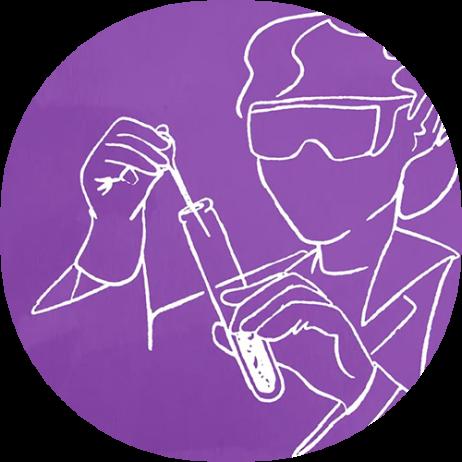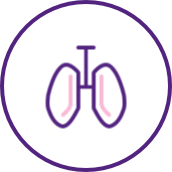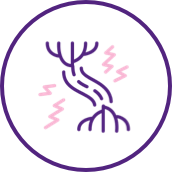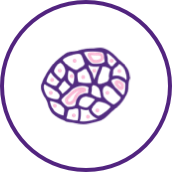Research and Development
Vertex is focused on discovering, developing and producing innovative medicines so people with serious diseases can lead better lives. Our scientists don’t see the impossible as an obstacle; they see it as a good place to start.
We have a unique way of building our drug discovery programs to maximise their chances of creating therapies that may dramatically improve patients’ lives. Our focus is on serious diseases where we could truly have a transformative impact for patients, not just an incremental benefit.
We work only on projects where we have a deep understanding of the underlying cause of disease in humans. Then we research and develop therapeutic approaches that are most likely to succeed. Rather than looking for problems we can solve with only the tools we’ve used before, we figure out the problems that need to be solved for the diseases we’re going after and invent the tools to potentially fix them.

Vertex is focused on discovering, developing and producing innovative medicines so people with serious diseases can lead better lives. Our scientists don’t see the impossible as an obstacle; they see it as a good place to start.
We have a unique way of building our drug discovery programs to maximise their chances of creating therapies that may dramatically improve patients’ lives. Our focus is on serious diseases where we could truly have a transformative impact for patients, not just an incremental benefit.
We work only on projects where we have a deep understanding of the underlying cause of disease in humans. Then we research and develop therapeutic approaches that are most likely to succeed. Rather than looking for problems we can solve with only the tools we’ve used before, we figure out the problems that need to be solved for the diseases we’re going after and invent the tools to potentially fix them.

Cystic fibrosis
Cystic fibrosis (CF) is a rare, chronic and life-shortening genetic disease. It’s a progressive, multi-system disease that affects the lungs, liver, gastrointestinal tract, pancreas, sinuses, sweat glands and reproductive tract. In the lungs, this leads to the build-up of abnormally thick, sticky mucus that can cause chronic lung infections and inflammation, resulting in progressive lung damage and premature death in many people with CF. Other complications can include malabsorption and failure to thrive due to pancreatic disease, diabetes, liver disease, bone disease or osteoporosis, depression and anxiety.

Pain
Pain is a potentially debilitating condition that develops from a variety of circumstances; it can be acute or chronic and range in severity. Poorly managed pain can lead to a significant decrease in quality of life and is often associated with complications such as sleep interruption, immobility, inability to work and major depression.

Sickle cell disease
Sickle cell disease causes severe pain, organ damage and a shortened life span due to misshapen or “sickled” blood cells.

Beta thalassaemia
Beta thalassaemia primarily presents as anaemia, or a lack of red blood cells. This can lead to many different complications and medical problems.

APOL1-mediated kidney disease
APOL1-mediated kidney disease is a kidney disease associated with certain APOL1 genetic mutations that can have various clinical presentations, including focal segmental glomerulosclerosis and other severe kidney disease. These diseases are more aggressive when associated with APOL1 mutations and can lead to rapidly progressive kidney damage and potentially kidney failure.

Type 1 diabetes
Type 1 diabetes is a metabolic, autoimmune disease where the cells in the pancreas (beta cells) that produce insulin are destroyed. Without proper management, it can lead to kidney disease, eye disease, nerve damage and even death.

